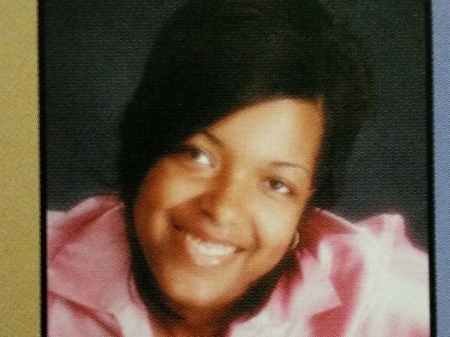Amber Vinson, 2nd Ebola Infected Nurse Called CDC Several Times Before Flying; 'Somebody Dropped the Ball,' Says Health Official

As President Barack Obama attempted to calm fears about the spread of the deadly Ebola virus Wednesday, one health official has charged that someone at the Centers for Disease Control and Prevention "dropped the ball" in allowing Amber Vinson, the second nurse infected with the virus to fly.
Vinson, 26, was one of the nurses at Texas Health Presbyterian Hospital who cared for Liberian national Thomas Eric Duncan, 42, who was the first person diagnosed with Ebola in the U.S. this year. Vinson was confirmed as the second Dallas healthcare worker diagnosed with Ebola just a day after she took Frontier Airlines flight 1143 from Cleveland to Dallas with 132 other passengers on Oct. 13.
An unidentified health official charged in a CBS report Wednesday that Vinson called the CDC several times to report that she had a fever with a temperature of 99.5 degrees before flying. Since her fever was not 100.4 degrees or higher, she didn't fall into the "high risk" category and was allowed to fly.
In a statement after news broke of Vinson's infection, Obama said his administration would respond to Ebola "in a much more aggressive way," and calm growing fears about his administration's handling of the disease.
"I know that people are concerned about the fact that the second healthcare worker had traveled. Here's what we know about Ebola: That it is not like the flu. It is not airborne. The only way that a person can contract Ebola is by coming into direct contact with the bodily fluids of somebody who is showing symptoms. In other words, if they don't have symptoms, they're not contagious," said Obama.
"I want to use myself as an example just so that people have a sense of the science here. I shook hands with, hugged, and kissed not the doctors, but a couple of the nurses at Emory because of the valiant work that they did in treating one of the patients. They followed the protocols, they knew what they were doing, and I felt perfectly safe doing so," he noted.
"And so this is not a situation in which, like a flu, the risks of a rapid spread of the disease are imminent. If we do these protocols properly, if we follow the steps, if we get the information out, then the likelihood of widespread Ebola outbreaks in this country are very, very low," he added.
Despite Obama's assurances, however, Pennsylvania Republican Congressman Tom Marino said the Ebola situation in America "is beginning to spiral out of control," and called for CDC director Dr. Tom Frieden to resign in a CNN report.
"The reports my colleagues and I have received are utterly unacceptable and the information provided to the public has been cryptic, and in some cases misleading," Marino told CNN. "This has provided a false sense of security to many of our citizens."
House Speaker John Boehner, R-Ohio, called on the U.S. to consider a travel ban "along with any other appropriate actions as doubts about the security of our air travel systems grow."
"The administration must be able to assure Americans that we will stop the spread here at home," said Boehner.
"We will continue to press the administration for better information about what steps will be taken to protect the American people, including our troops, from this deadly virus," he continued. "And we will work with the administration on appropriate policy options that will help stop the spread of this horrific disease both here in the United States and around the globe."
As those criticisms echoed across the country Thursday morning. Briana Aguirre, a nurse at Texas Health Presbyterian Hospital who said she helped care for her friend and colleague, Nina Pham, the first healthcare worker to test positive for Ebola, said the hospital's handling of Ebola protocols once Thomas Eric Duncan arrived was sloppy.
"I watched them violate basic principles of nursing," Aguirre told TODAY's Matt Lauer. "I would try anything and everything to refuse to go there to be treated. I would feel at risk by going there. If I don't actually have Ebola, I may contract it there," she said.
"We never talked about Ebola and we probably should have," she explained. Instead, "they gave us an optional seminar to go to. Just informational, not hands on. It wasn't even suggested we go. … We were never told what to look for."
Visit NBCNews.com for breaking news, world news, and news about the economy
Aguirre further described the Ebola protocol at the hospital as "chaotic."
"It was just a little chaotic scene. Our infectious disease department was contacted to ask, 'what is our protocol.' And their answer was, 'we don't know. We're going to have to call you back,'" she said.
When she was assigned to care for Pham, she said the protective gear she was offered was insufficient as she was only given gloves and a two protective gowns (back and front) that left several inches around her neck exposed.
"I'll be honest, I threw a fit. I just couldn't believe it," she said. "In the second week of an Ebola crisis at my hospital, the only gear they were offering us at that time, and up until that time, is gear that is allowing our necks to be uncovered?"
In his statement Wednesday, Obama acknowledge that there are shortcomings in the application of the Ebola protocols but his administration is working to change that.
"What I've directed the CDC to do is that as soon as somebody is diagnosed with Ebola, we want a rapid response team, a SWAT team, essentially, from the CDC to be on the ground as quickly as possible -- hopefully within 24 hours -- so that they are taking the local hospital step by step through exactly what needs to be done and making sure that all the protocols are properly observed; that the use of protective equipment is done effectively; that disposal of that protective equipment is done properly," said Obama.
"I think what we've all learned over the last several weeks is that folks here in this country, and a lot of non-specialized hospitals and clinics, don't have that much experience dealing with these issues. And so we're going to have to push out this information as aggressively as possible, and that's the instructions that I've provided to my team," he added.





















